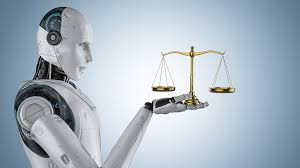Introduction
The legal sector is under pressure. Courts are backlogged, legal research is time-consuming, and millions of people worldwide still lack access to justice. Legal AI is no longer just an experiment — it’s becoming essential. From automating case research to drafting contracts, AI has the potential to revolutionize how law is practiced and delivered.

What Is Legal AI?
Legal AI refers to the use of artificial intelligence in legal processes. This includes:
- Document automation → creating contracts, agreements, and forms.
- Legal research → analyzing massive volumes of case law in seconds.
- Case prediction → assessing likely outcomes based on historical data.
- E-discovery → reviewing thousands of documents for litigation quickly.
According to the Stanford AI Index, legal AI adoption has surged over the past three years, particularly in North America and Europe.
Why the Legal Sector Needs AI Now
1. Access to Justice
Millions of people cannot afford lawyers. AI-powered tools can provide affordable, accessible legal support, bridging this gap.
2. Efficiency in Legal Work
Research that once took days can be completed in minutes. This efficiency frees lawyers to focus on strategy and client relationships.
3. Reducing Case Backlogs
Courts worldwide face overwhelming caseloads. AI can assist judges and clerks by summarizing documents, flagging precedents, and accelerating decisions.
4. Cost Reduction
By automating routine work, firms can reduce operational costs while maintaining high-quality service.
Risks and Ethical Challenges
The rise of legal AI also raises important challenges:
- Bias in algorithms → AI may replicate systemic bias found in historical cases.
- Transparency → AI decisions must be explainable to remain credible in court.
- Accountability → Who is responsible when AI-assisted decisions go wrong?
- Data privacy → Sensitive client information requires strict safeguards.
The OECD AI Policy Observatory emphasizes the need for responsible AI frameworks to avoid misuse in sensitive areas like justice.
The Future of Legal AI
Looking ahead, legal AI will evolve from a support tool into a collaborative partner for lawyers and judges. We can expect:
- Smarter case management systems.
- AI-driven legal assistants embedded into court systems.
- Expanded access to justice in developing nations.
- Integration with government platforms (like digital documentation initiatives).
Conclusion
The legal sector cannot afford to ignore AI. From improving access to justice to streamlining processes, legal AI has the potential to make law more efficient, fair, and inclusive. The challenge now is not whether to adopt AI, but how to adopt it responsibly.
👉 Previous in the Series: AI Regulation: Balancing Innovation and Control
👉 Next in the Series: AI Ethics in the Courtroom: Can Machines Be Fair?
